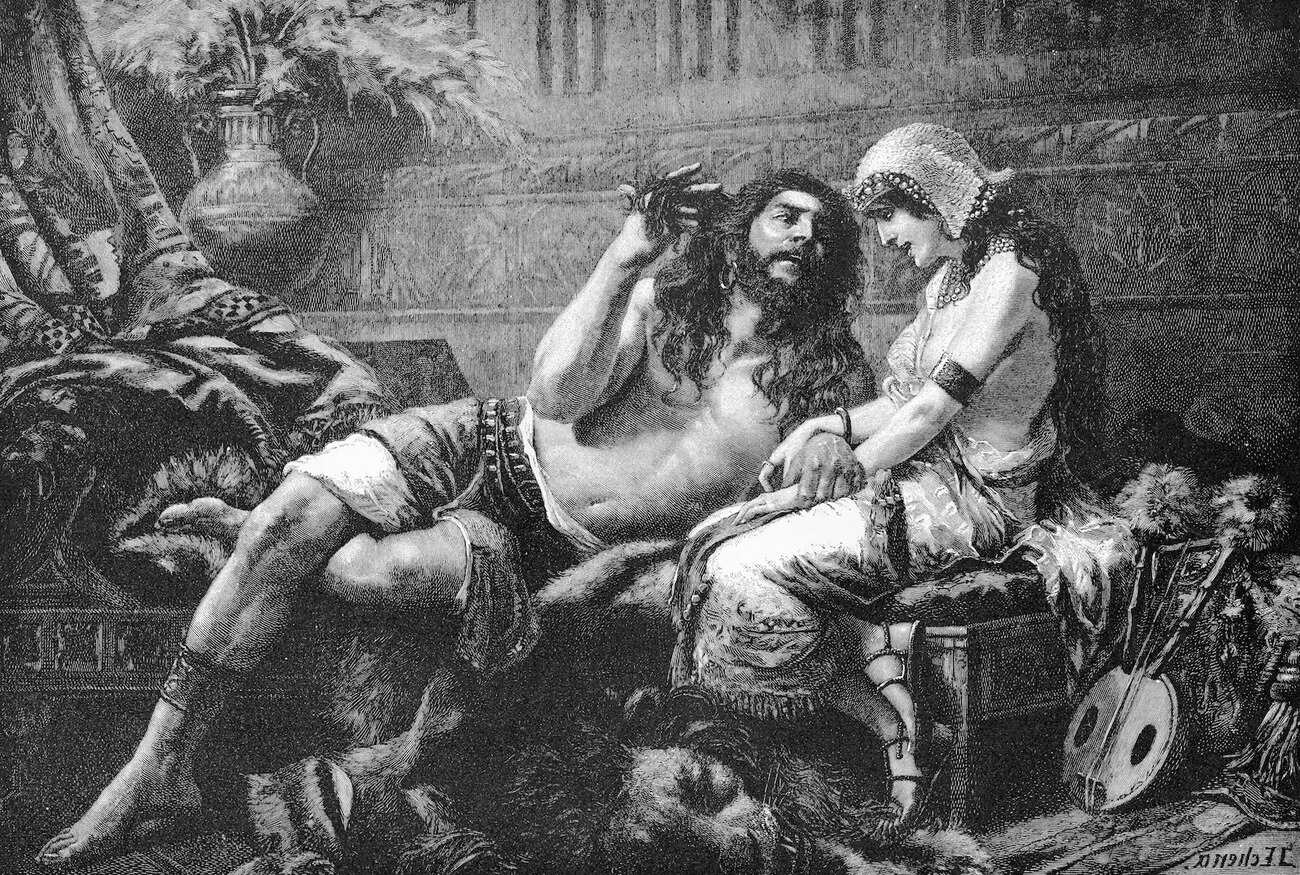
Ever wondered about the ancient Jewish practice of the Nazirite vow? This unique tradition, rooted in the Hebrew Bible, involves a person voluntarily dedicating themselves to God through specific vows. These vows include abstaining from wine and grape products, not cutting their hair, and avoiding contact with corpses. Famous Nazirites like Samson and Samuel highlight the spiritual significance and challenges of this commitment. While rare today due to the absence of the Temple, the Nazirite vow remains a fascinating aspect of Jewish history and law. Let's explore 30 intriguing facts about Nazirites and their enduring legacy.
Who Were the Nazirites?
Nazirites were individuals in ancient Jewish tradition who took special vows to consecrate themselves to God. Their practices and lifestyle were distinct and highly regulated.
-
Definition and Etymology: The term "Nazirite" comes from the Hebrew word nazar, meaning "to abstain from" or "to consecrate oneself to."
-
Historical Context: In the Hebrew Bible, Nazirites are described as people who voluntarily take a vow to separate themselves from worldly pleasures and dedicate their lives to God.
-
Original Nazirites: Initially, Nazirites held their status for life. They were considered holy men with special gifts and often linked to prophets and diviners.
Notable Nazirites in History
Several key figures in the Hebrew Bible were Nazirites, and their stories highlight the significance of this vow.
-
Samson the Nazirite: Samson, known for his uncut hair and immense strength, was a Nazirite from birth. His story underscores the power and importance of the Nazirite vow.
-
Samuel the Prophet: Samuel, consecrated by his mother Chanah, remained a Nazirite throughout his life. He played a crucial role in leading Israel and anointing its kings.
-
Queen Helena: Queen Helena vowed to be a Nazirite for seven years but had to restart her period twice due to defilement, ultimately observing the vow for 21 years.
Laws Governing Nazirites
The Hebrew Bible outlines specific laws that Nazirites must follow, emphasizing their commitment to spiritual purity.
-
Abstinence from Wine and Grape Products: Nazirites must avoid wine, vinegar, grapes, raisins, and any grape-derived products.
-
No Cutting of Hair: Nazirites are forbidden to cut their hair. If they do, they must restart their period of Naziriteship.
-
Avoidance of Corpses: Nazirites must avoid contact with corpses or graves, even those of family members, to remain ritually pure.
Duration and Perpetual Nazirites
The length of the Nazirite vow can vary, and the absence of the Temple affects its observance.
-
Duration of the Vow: If unspecified, the vow is assumed to last 30 days. Some Nazirites may choose longer periods or even a lifetime commitment.
-
Perpetual Nazirites: Without the Temple, all Nazirites are considered perpetual, observing the laws indefinitely. They can cut their hair once a year and restart their period.
-
Sacrifices and Shaving: When the Temple exists, Nazirites must bring three sacrifices and shave their hair to conclude their period. Without the Temple, this ritual cannot be performed.
Modern Interpretations and Practices
Today, the practice of becoming a Nazirite is rare, but the laws and traditions remain significant in Jewish culture.
-
Non-Jewish Nazirites: Non-Jews cannot become Nazirites. The vow is specific to Jewish individuals.
-
Ascetic Practices: The Nazirite vow involves ascetic practices like abstaining from wine, symbolizing a focus on spiritual pursuits.
-
Interpretations in Talmud: The Talmud offers diverse views on Nazirites, with some seeing them as ideal and others as sinners due to the need for a sin offering.
-
Modern Practice: The absence of the Temple makes becoming a Nazirite rare today, but the tradition is still observed in theory.
-
Rabbinical Authorities: Modern rabbinical authorities discourage the practice due to its impracticality without the Temple, though the laws remain important in Jewish tradition.
Challenges and Consequences
Observing the Nazirite vow comes with challenges and specific consequences for failing to fulfill obligations.
-
Annulment of Vows: A father can annul his young daughter's Nazirite vow, and a husband can annul his wife's vow when first hearing about it.
-
Consequences of Failure: If a Nazirite fails to fulfill their obligations, they may need to repeat their period and bring sacrifices or suffer penalties.
-
Shaving Hair: If a Nazirite shaves their hair, they must wait 30 days for it to grow back before continuing their period.
-
Avoidance of Corpses: Nazirites must avoid contact with corpses or graves, even those of family members, to remain ritually pure.
Cultural and Historical Significance
The Nazirite vow holds cultural and historical significance, influencing various aspects of Jewish tradition and beyond.
-
Physical Activities: The term "Nazirite" can also refer to a crown or a state of being consecrated, highlighting their special status.
-
Deuterocanonical Texts: Texts like 1 Maccabees mention men who had ended their Nazirite vows, providing historical context.
-
Josephus’s Accounts: Historian Josephus mentions several Nazirites, including his tutor Banns and Bernice, who took the vow during the First Jewish-Roman War.
-
Early Syriac Christianity: Early Syriac Christians adopted the Nazirite vow in their ascetical practices, as seen in writings by Apharat and John Scully.
-
John the Baptist: John the Baptist is often considered a Nazirite due to his ascetic lifestyle and prophetic role.
-
Divergent Interpretations: The Bible describes Nazirites as both holy and needing a sin offering, leading to varied interpretations among Talmudic authorities.
-
Cultural Significance: Nazirites symbolize spiritual purity and separation from worldly pleasures, making them a significant figure in Jewish tradition.
-
Historical Examples: Figures like Samson, Samuel, and Queen Helena demonstrate the challenges and spiritual significance of the Nazirite vow.
-
Modern-Day Observance: While rare today, the practice of becoming a Nazirite remains an important part of Jewish tradition and halakha.
The Nazirite's Legacy
The Nazirite represents a unique blend of spiritual dedication and ascetic practices in Jewish tradition. From Samson's legendary strength to Samuel's prophetic leadership, Nazirites have left an indelible mark on history. Their vows of abstinence from wine, uncut hair, and avoidance of corpses symbolize a deep commitment to spiritual purity. Though rare today due to the absence of the Temple, the concept remains a fascinating aspect of Jewish law and culture. Modern rabbinical authorities often discourage taking the vow, yet the Nazirite's legacy endures in religious texts and historical accounts. Whether viewed as holy or as sinners needing a sin offering, Nazirites continue to captivate scholars and believers alike. Their story is a testament to the enduring power of faith and the lengths to which individuals will go to consecrate their lives to a higher purpose.
Was this page helpful?
Our commitment to delivering trustworthy and engaging content is at the heart of what we do. Each fact on our site is contributed by real users like you, bringing a wealth of diverse insights and information. To ensure the highest standards of accuracy and reliability, our dedicated editors meticulously review each submission. This process guarantees that the facts we share are not only fascinating but also credible. Trust in our commitment to quality and authenticity as you explore and learn with us.


